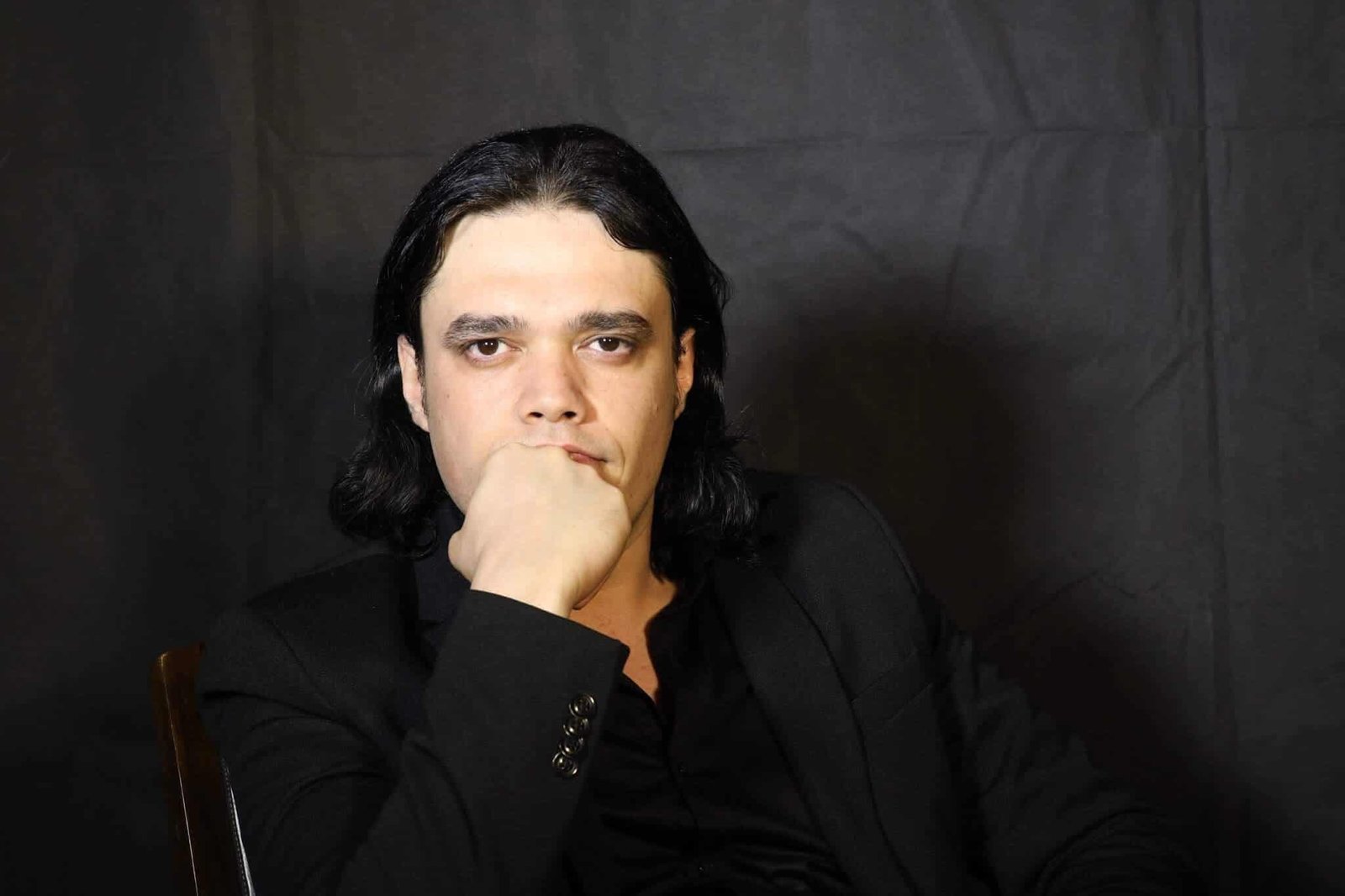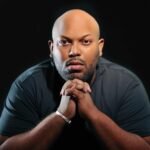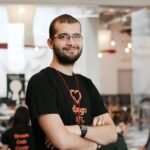Waleed Al-Husseini founded the Council of Ex-Muslims of France. He escaped the Palestinian Authority after torture and imprisonment in Palestine to Jordan and then France. He is an ex-Muslim and atheist. Here is his story.
Scott Douglas Jacobsen: You were born in Palestine and live in France. There’s a story about the transition in geography and ideas, and beliefs. You were a Palestinian Muslim. Now, you’re an atheist and ex-Muslim living in France. You have a book coming out May 16, 2017 entitled, The Blasphemer: The Price I Paid for Rejecting Islam. Before getting to that point, what is your family religious background?
Waleed Al-Husseini: My family is Muslim Sunnah, like most Palestinian families, but they were normal, not fundamentalist, more humanistic than religious.
SJ: You are from Qalqilyah on the West Bank. What were the first moments of doubt in Allah?
WA: It started in my secondary school. I was thinking about free will in Islam because in the school we had to study Islam and Quran. I asked about my doubt to the teacher, but didn’t get answers. I tried with some imam in Qalqilyah, but the response was that is was from Satan. They told me that I should go home and pray because these questions were from Satan. So I started reading by myself and from the library. All of the Islamic books. I started to discover a lot of things, which shocked me.
SJ: What seems like the best argument for atheism and against Islam to you?
WA: In Islam, there a lot of things that make it one of the most weak religions. Since there are mistakes in the Quran, there are also things against human rights in the Quran, and for sure the situation of women in Islam. All these are arguments for atheism against Islam.
SJ: You wrote at the Qalqilyah Internet café. You were reported to the authorities for making Muslim citizens mad. Did your family and friends disowned you? What were the most hurtful comments? How did you cope?
WA: My family knew that I was an atheist before I got arrested. They were thinking that I’m just young and I will become a Muslim once I grow up again. My friends stopped the friendship with me. When they found out I was an atheist, I had problems in university too. So I had to change the university to save my life. The most hurtful for me was when they insulted me by my mother and the family. My family has Muslims in it. They insulted them, but most comments as usual were insulting and mixing with threats for killing and death.
SJ: Is this a common series of reactions for those that leave the faith in mind and heart, and then in deed?
WA: Yes, for them, when you speak about Islam and atheism, they think you are paid from someone. That’s why they threaten and insult. For them, it is not a personal choice to leave Islam.
SJ: Why is the reaction so seemingly disproportionate against even a son, a brother, or a friend such as yourself?
WA: Because this is always in the culture, this hurts me more than what they think, which, as I explained before, they think it’s not a personal choice, and that you are being paid by others to destroy Islam. It is impossible to leave Islam by yourself because what we learn is that Islam is perfect. Even others envy us for this religion, this one of the biggest problems in teaching children. They brainwash children.
SJ: You were a computer science student and a barber assistant – for your father. You wrote on the personal blog Noor al-Aqel or “Enlightenment of Reason.” What were the general topics? Why write there, and on those topics?
WA: In my blog, in the beginning, my articles talked about my doubts because I was writing at that time to look for the truth. That’s what I kept saying during all my articles, then I tried to put rocks in the calm water and speak about the taboo and that’s what I did.
SJ: You were arrested by the Palestinian Authority in October, 2010. The charge: (alleged) blasphemy against Islam in online writing – blog posts and Facebook. The arrest was an international note. What was the personal reaction 6/7 years ago for you?
WA: I was arrested on the 2nd of November in 2010. My reaction in the beginning was like, “I don’t understand why I’m arrested because I thought that Palestine is a secular state as it is openly declared.” I was wrong. I went through the military court.
SJ: In imprisonment by the Palestinian Authority, there does not seem to have been a justification for it. You were in solitary confinement. This imprisonment went on for 11 months. You were tortured. For free expression, this happened to you. Foreign government and international attention placed pressure on the Palestinian Authority. You were paroled, then fled to Jordan first. Why Jordan?
WA: Because Jordan is the only country I can be without visa, and in West Bank, there is no embassy for a European country. So I have to go to Jordan if I want ask for a visa, so I escaped to Jordan to acquire the visa.
SJ: Next, you went to France. Why France from Jordan? What was the appeal of France?
WA: I chose France in the beginning because they know my story well. The French government spoke about my story. I didn’t want to lose time waiting for the visa and then have to prove my story. So it was really fast to have the French visa.
SJ: You founded the Council of Ex-Muslims of France on July 4, 2013. The date has significance. It “marked the torture and murder of young Frenchman Jean-François Lefevre de la Barre in 1766 for refusing to remove his hat while a religious procession passed by and was a reminder of the countless la Barres facing threats, torture, imprisonment and death for apostasy, blasphemy, heresy, atheism and refusing to comply with Islamist norms.”
There were a number of prominent speakers there.[i] The speakers list and its foundation was an attempt to establish an “important step,” a prominent first step, in provision of a challenge to Islamism – the desire to impose political Islam over society – and apostasy laws as well as a defense for “free expression, freedom of belief and atheism and secularism.” What has been the organisation’s trials and tribulations in foundation, development, maintenance, and growth since that time?
WA: Exactly, and we chose that date to show that we are similar like ex-Muslims, we are now more than 100 members who live in France. Most of us can’t speak and be in public, even they live here in France, for the same reasons if they live in Islamic country.
SJ: What seem like the best means to combat far-Right ideologies such as white nationalism and Islamism?
WA: For me, the far-Right do not mean only European far-Right. What they call “Islamism” are far-Right too. For me, they are all the same, some far-Rights fight Islamism just for their own racists goals, but we fight Islamism for our human rights. That’s why we are also against far-Right ideologies, even if they are use our speeches and words for their own goals.
SJ: Now, you advocate free speech and criticise Islam – as beliefs, purported divine revelatory scripture, and suggested practices for adherents. What makes free speech worth fighting for, even in the light of your previous imprisonment and torture?
WA: It’s worth it to help our people live in peace, to let the different people like me not have to leave their own country, to make friends accept them and doesn’t matter there beliefs, to try make the society for everyone, for secularism and respect.
SJ: What does France and Western Europe take for granted with respect to free speech?
WA: That you can say whatever you want about religion, criticise it, and speak openly.
SJ: Who is a favourite philosopher and writer in history, alive or dead?
WA: I like Voltaire.
SJ: You wrote on the conspiratorial perspective of some Muslims. That is, individuals leaving Islam can be seen as an agent of a Western or Jewish State. What seems like the source of this conspiracy view?
WA: Yes, because we are like spies to them, this comes from the Quran itself.
SJ: What are the upcoming and ongoing initiatives for the Council of Ex-Muslims of France?
WA: We have a conference in July in London for all ex-Muslims.
SJ: Any feelings or thoughts in conclusion based on the discussion today?
WA: Thank you.
SJ: Thank you for your time, Waleed.
[i] Successful launch of Council of Ex-Muslims of France (2013) said:
Speakers at the packed event included founding members of the Council of Ex-Muslims of France Waleed Al-Husseini; Atica Samrah; Mehdi Lamrani; Elias Ben Amer and Soad Baba Aïssa of Association pour la mixité, l’égalité et la laïcité en Algérie. Other speakers included Council of Ex-Muslims of Britain’s Maryam Namazie, Tunisian film-maker Nadia El-Fani; Secularist Caroline Fourest; Safia Lebdi of Insoumisses; activist Fatou Sou; Mimouna Hadham; and Marieme Helie Lucas of Secularism is a Woman’s Issue.
Council of Ex-Muslims of Britain. (n.d.). Successful launch of Council of Ex-Muslims of France. Retrieved from http://ex-muslim.org.uk/2013/07/successful-launch-of-council-of-ex-muslims-of-france/.








[…] here, here, and here), The Good Men Project (here), Humanist Voices (here), and Conatus News (here, here, and here). Here is an educational series on ex-Muslims in […]